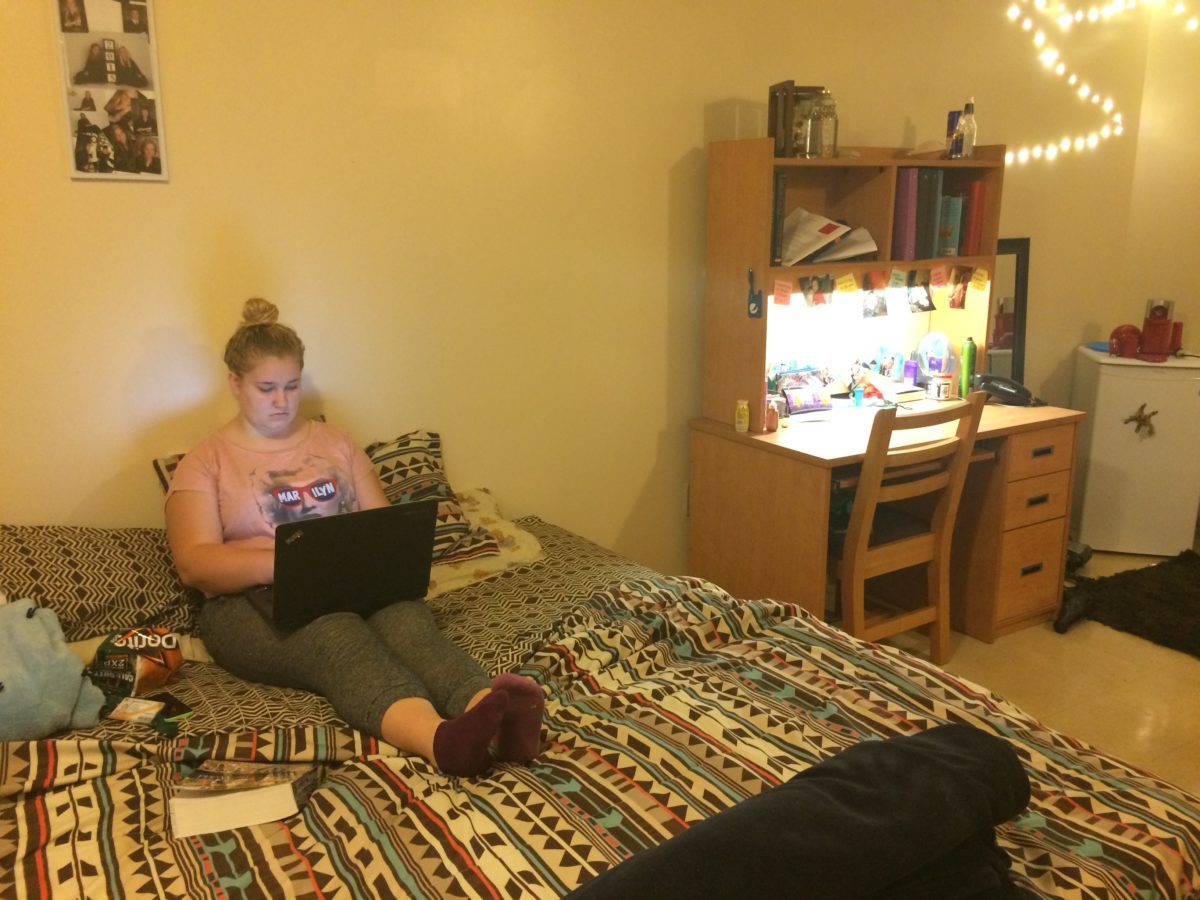A month ago my family moved both of my sisters from their respective apartments to new cities. One went from Fredericton to St. John’s and the other from Halifax to Ottawa. That’s a lot of driving.
When making such a long journey one has to ponder some deep questions about what’s making it in the U-haul and what’s becoming “bonus” furniture for the people taking over your space.
The desk is an object often subject to this debate. While once the icon of work, productivity and the easel of the mind, that’s not the case anymore, at least for young people.
If you go into most university student’s bedrooms the night before an essay is due, you won’t find them at their desk. You’ll find them on the bed with the laptop. To many, the desk has become a glorified bedside table.
But what does that mean for the desk? Has what it means to be a desk really changed or just what we see as a desk? And what does it mean for an object to become obsolete?
For these questions we go to Alan Hall, a philosophy professor here at St. Thomas University.
While Hall is not a carpenter, he’s a bit of a sage. He’s the type of man you’ll find when you least expect him at coffee shops or in weird corners outside libraries with his eyes closed and his headphones on. He thinks a lot.
He calls the question about what happens to the desk when it’s function had changed, “the Velveteen Rabbit problem” after the children’s book with the same name. In the book a stuffed rabbit becomes real after a boy loves him enough.
“On some level you have to say no, (the desk doesn’t change),” Hall said. “But the problem with that is it implies there’s a sort of one-directional relationship there; inanimate objects are just simply there and human actors just impose their will against those objects. But that’s not true.”

For Hall, as much as we may shape the objects around us, they shape us too.
He says he is particular. The table he’s working at must be a certain size and empty, without anything besides the work on it. The light must be low in the room beside right over the work.
If the desk’s nature were completely up to us, none of that would matter.
“The problem is, we’re embodied. Our lives and work take place in an embodied way. They take place in history in a certain time and place,” said Hall. “So all that means the things that constitute that time on place, especially the physical things, have a sort of claim upon us.”
More simply put, before the advent of the laptop it was difficult to write in bed and that determines part of how we work.
He said it’s difficult to unravel what constitutes the embodied worlds we live in and how we navigate through them. It’s difficult if not impossible to know whether the essence or truth of what it is to be a desk will continue to exist.
But Hall said at certain point, the desk we know, the independent workstation table, will cease to be. We will stop buying them, a few will be moved to museum and eventually all of them will turn to dust, thrown on the dustbin of history.
“But that doesn’t mean that will stop people from doing what they did at desks,” said Hall.
What is changing, he said, is while the desk was differentiated, standing alone in your room with its sole function being work, the bed and laptop combo, or moreover the Smartphone, is knocking down that separation. Now the whole world is a sort of desk.
He said you can see this in the way houses are being made. Houses used to have a living room, a kitchen, a den, bedrooms; now you have open concept.
“The space has become less differentiated, I don’t know what that tells us, but it tells us something,” said Hall.
“But I like to work with incandescent light, I hate florescent light. … soon I’m not going to be able to do that, because everyone has announced (the end of incandescent lights), there is going to be something that dies there. That’s just what happens, all the time.”
(Got an idea? Like to take a stab at idea journalism? Contact The Aquinian at eic@theaq.net)
